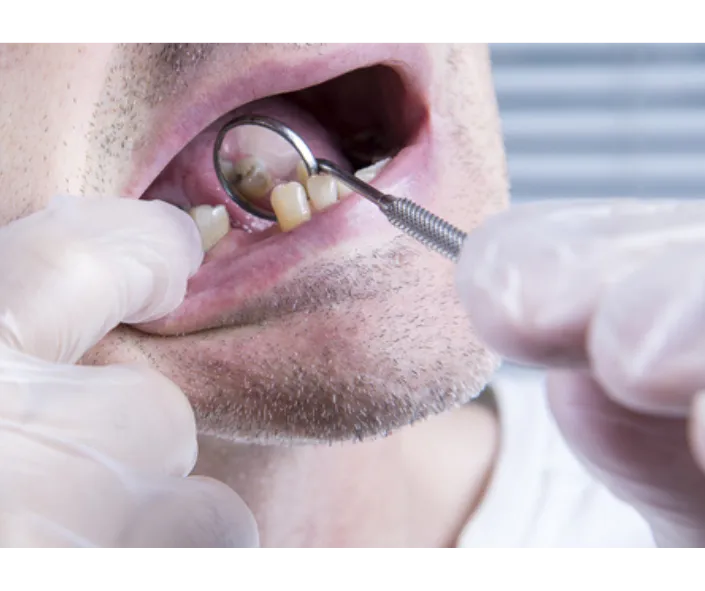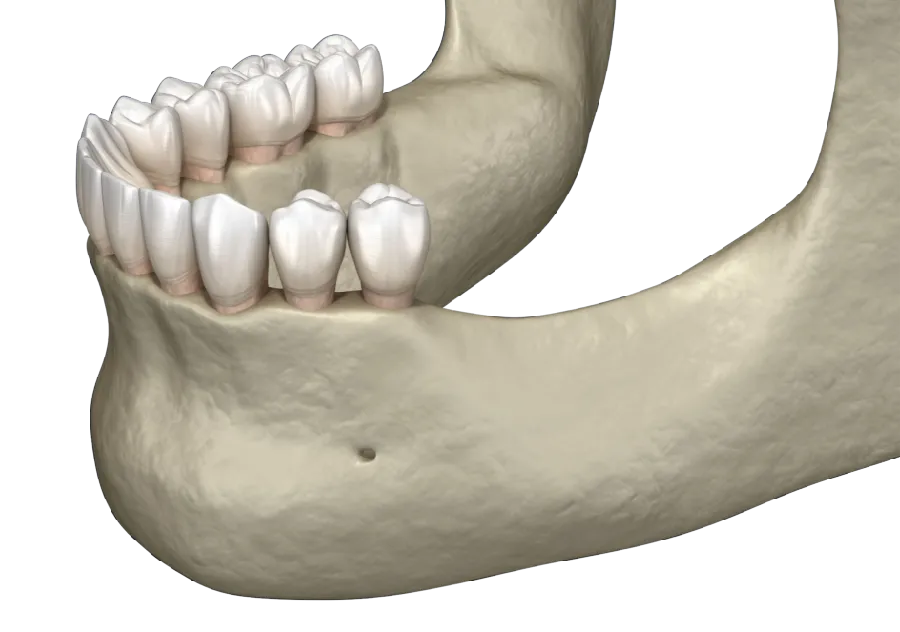Dental Implant vs Dentures
Both dental implants and dentures have pros and cons. While weighing your options, it's always a good idea to talk to your dentist. Dr. Samani can help you make the right decision and explain the differences in detail. Here are some factors to consider when choosing between a dental implant and dentures.
Cost
Dentures can vary in cost depending on the number of teeth replaced and the procedure's complexity. A complete set of dentures can cost anywhere from $1000 to $3000. If you need partial dentures to replace just a few teeth, they can range in price from $500 to $1,500. You may need to pay for professional teeth cleanings and periodic adjustments or repairs as your gums change shape over time.
The cost of a dental implant can also vary. On average, a single implant can cost anywhere from $1,000 to $3,000. If you need to replace multiple teeth, the cost can increase to $5,000. In addition, you may also need to pay for an implant abutment (a connector piece used to attach the implant to the replacement tooth) and a dental crown (an artificial tooth that covers the implant). The total cost of these procedures can range from $3,000 to $6,000 or more.

Comfort
Dentures have come a long way in recent years. They are now more comfortable and realistic looking than ever before. However, they are not as secure as dental implants, and they can sometimes slip or rub against the gums, causing discomfort.
Dental implants are comfortable, secure, and feel like natural teeth. Unlike dentures, dental implants are securely anchored to the jawbone, providing a natural look and feel. Most people with dental implants say they are very satisfied with them and would recommend them to others.

Process
A dental implant is the most advanced option but is also the more invasive, as they require surgery to place the implant in the jawbone. This option is not for everyone; you need to be in good health to have them installed.
The healing process can take several months, during which time the patient must avoid putting pressure on the implant to allow it to heal properly. Once healed, the implant can last a lifetime with proper care. By contrast, placing dentures in the mouth does not require surgery, and there's no waiting period for healing.
Durability
Dentures are made of various materials, including acrylic. They are not surgically implanted. They rest on the gums and are held in place with adhesives. Dentures typically last about 5 to 10 years before they need to be replaced. And over time, they can become loose and uncomfortable.
Dental implants are made of titanium, a durable metal that can last a lifetime with proper care. They have a success rate of 95% or higher. That means that out of 100 people who get dental implants, at least 95 will still have them after ten years. With proper care, they can last a lifetime.
Appearance
Although dental implants and dentures both have the potential to create a natural-looking smile, dental implants are often considered to be the more aesthetically pleasing option. Dental implants are permanently fixed in place, while dentures are removable. Dental implants are designed to mimic the look and feel of real teeth with regard to your facial features, while dentures can sometimes appear bulky and unnatural.

Long-Term Effects
Another key difference between the two options is that dental implants preserve the jawbone, while dentures can lead to bone loss. When you lose a tooth, the jawbone no longer has anything to support and begins to deteriorate.
Dental implants stimulate the jawbone, prevent bone loss, and preserve the facial structure. Dentures do not support the jawbone as well as implants. And because they're not fused to your bone, over time, they can begin to change the shape of your face.
While dental implants may initially cost more than dentures, they can save you money in the long run because you won't need to replace them as often. And, since they last longer, dental implants also provide greater value for your investment. Also, they feel more comfortable and look more natural than dentures. If you want to feel like you've never lost a tooth in the first place, dental implants are your best option!
Privacy Policy | Terms and Conditions
© Cloud Dental Austin 2023
HOURS:
M-F 8am-5pm
Weekends CLOSED
What are Dentures?
Dentures are removable appliances for your mouth. They replace both missing teeth as well as some of the gum tissue.
Dentures are made of a pink gum colored acrylic base. This base supports the denture teeth.
Some dentures will include a lightweight metal framework that provides extra strength and support.
With dentures, you have two options: removable complete dentures and partial dentures.
Complete Dentures
First, complete or full dentures replace all the teeth in the upper or lower jaw or in both jaws.
Complete dentures rest directly on the gums.
Partial Dentures
Partial dentures, on the other hand, are used to fill in gaps. Because of this, partial dentures are more often used when some of the natural teeth still remain.
These dentures are supported by clasps around existing teeth. Partial dentures may also be attached with precision attachments that are fitted onto crowns.
Pros of Dentures
Dentures are less expensive than implants.
Dentures can be placed in by patients who have experienced bone and gum loss (unlike implants, which must be anchored to bone).
The procedure for fitting dentures is non-invasive. Also, drilling into the bone–a part of the implant process–is not required for dentures.
The process to make dentures is relatively quick, and only require about four dental visits.
Cons of Dentures
Adjustments or replacements may be necessary, as the structure of your face and gums change with age.
Dentures can take some getting used to and may be uncomfortable at first, especially during the first day or two of wearing them. You might experience increased salivation, difficulty chewing, and difficulty speaking.

